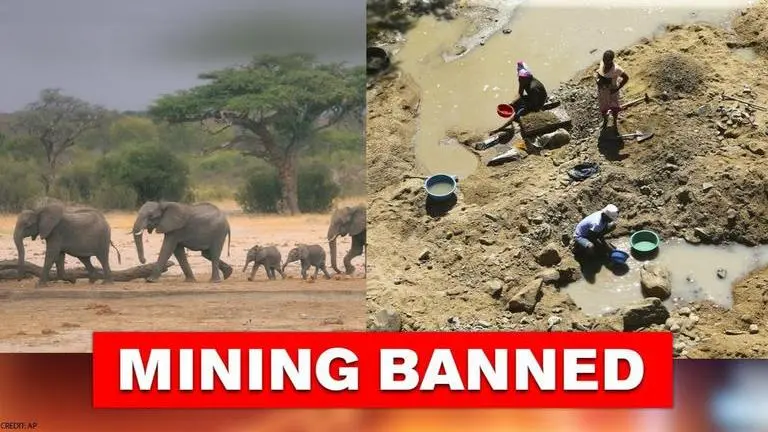Updated 10 September 2020 at 08:43 IST
Zimbabwe government bans mining in national parks to protect wildlife
Zimbabwe’s government says it has banned mining in its national parks, but an environmental group said that it will insist on “more than just words.”
- World News
- 3 min read

Zimbabwe’s government has banned mining in its national parks. However, the environmental group that had taken action to stop the development of a coal mine in an elephant-rich park that it will insist on “more than just words”, suggested reports by AP. Information Minister Monica Mutsvangwa announced that the government will not allow mining in national parks after various environmental and wildlife groups urged the government to take this decision. Zimbabwe Environmental Lawyers Association had applied to the High court after reports surfaced about a Chinese that had started exploratory work to mine coal within Hwange National Park. Shamiso Mtisi, the association’s deputy director, said, “The important thing for us is to get an interdict which is legally binding”.
Mining banned in national parks
As quoted by AP, the Center for Natural Resource Governance said, “We pray that all these mining titles (in Hwange) and others which are unknown to the public will indeed be cancelled”. It described the prioritization of mining over “a more stable and eco-friendly” sector such as tourism as “self-defeating”. Mitsi said, “There is gold and diamond mining going on in several national parks across the country, it’s not just in Hwange. That’s a major threat to biodiversity and to tourism. It’s an economic issue, you cannot just rely on mining, you need to leverage on other sectors such as tourism." Reports by AP suggest that more than 45,000 elephants live in Hwange park along with more than 100 mammal and 400 bird species, including buffalos, leopards, and lions. These animals are already struggling for food and water due to a prolonged drought.
In a separate incident a few days back, Zimbabwe's National Parks and Wildlife Management Authority spokesperson has informed that the toll of mysterious elephant deaths in the western region of the country climbed to 22. Tinashe Farawo, the country's parks agency spokesperson, is reported to have said that most of the elephants who died in the Pandamasue Forest were young and weak. The region is located between the vast Hwange National Park and Victoria Falls and faces a scarcity of food. Farawo added that the younger elephants fail to reach higher tree branches and could have eaten anything within the reach leading to suspected poisoning.
Advertisement
Meanwhile, Zimbabwe authorities are carrying on an investigation on the suspicious deaths and have ruled out cyanide poisoning and poaching as the probable cause. According to the reports, the blood samples have been sent to the laboratory for further analysis to determine the cause of their deaths. Farawo said that they can only ascertain the cause of death after a proper investigation. The probe will also try to establish if there is a link between the recent elephant deaths reported in neighboring Botswana.
Advertisement
(Image/Input Credits: AP)
Published By : Akanksha Arora
Published On: 10 September 2020 at 08:43 IST
